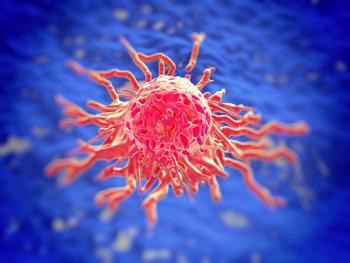
Oncology NEWS International
- Oncology NEWS International Vol 9 No 10
- Volume 9
- Issue 10
New BRCA1 Mutations Found in Black and Hispanic Women
WASHINGTON-Mutations of the BRCA1 gene occur in a different region of the gene among black and Hispanic carriers than in whites and Ash-kenazi Jews, researchers said at the Intercultural Cancer Council’s 7th Biennial Symposium on Minorities, the Medically Underserved, and Cancer.
WASHINGTONMutations of the BRCA1 gene occur in a different region of the gene among black and Hispanic carriers than in whites and Ash-kenazi Jews, researchers said at the Intercultural Cancer Councils 7th Biennial Symposium on Minorities, the Medically Underserved, and Cancer.
BRCA1 mutations in Ashkenazi Jewish women occur most frequently on exon 2, said Jaydutt Vadgama, PhD, director of the molecular oncology program, Charles R. Drew University of Medicine and Science, Los Angeles. The mutation known as 185del AG is predominant in this group, he said. Another mutation found in Ashkenazis is 5382ins C, which is also found in non-Ashkenazi whites.
In a study at Drew University, none of 54 black breast cancer patients or 47 Hispanic breast cancer patients had these mutations, Dr. Vadgama and co-researcher Dejun Shen, PhD, reported. They did, however, have mutations on exon 11.
In four black patients, there was a sequence variant labeled A3537G, and in another black woman, a frameshift mutation identified as 3331ins G was found. A novel mutation identified as C3717T was discovered in a Hispanic patient.
Several other sequence variants, polymorphism, and frameshift and nonsense irregularities were revealed as well.
Dr. Vadgama said that further work must be done to identify the significance of these mutations in relation to incidence and course of disease. The mutation identified in the Hispanic woman is the first BRCA1 mutation to be specifically attributed to that ethnic group. However, it is possible that this mutation and the others seen in the study might be found in other groups.
Articles in this issue
over 25 years ago
HER-2/neu Activation May Predict Breast Cancer Prognosisover 25 years ago
Company Offers Computer-Aided Detection of Breast Cancerover 25 years ago
ASBD, an Interdisciplinary Group, Fights Breast Cancerover 25 years ago
How Employers Can Help Caregivers in the Workplaceover 25 years ago
Only Slight Improvement in Hepatocellular Carcinoma Survivalover 25 years ago
Study Shows Profile of At-Risk Elderly Lung Cancer Patientsover 25 years ago
Scientific Studies Support Strategies to Curb Nicotine Addictionover 25 years ago
Smoking Declines Among High School Males, But Not Femalesover 25 years ago
Cuts in Medicare Reimbursement for Cancer Drugs on HoldNewsletter
Stay up to date on recent advances in the multidisciplinary approach to cancer.












































